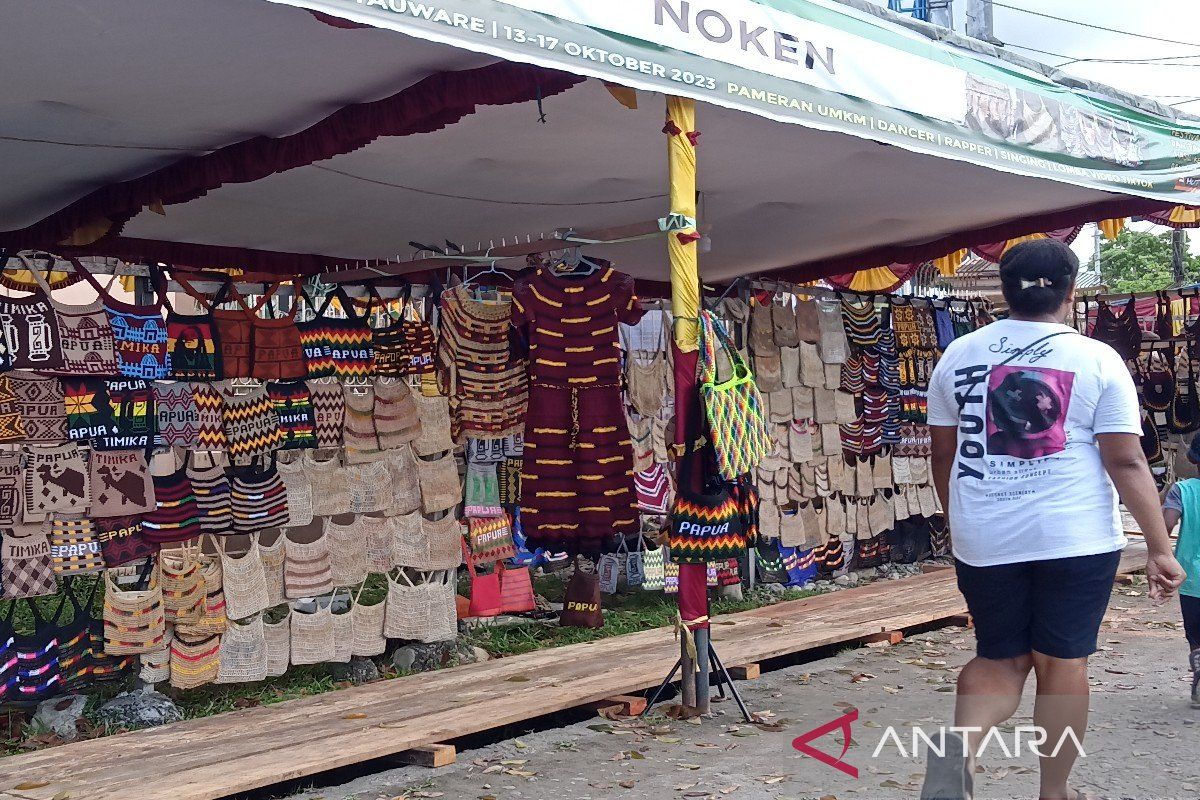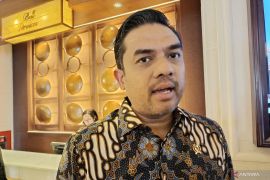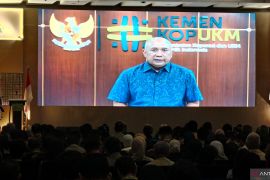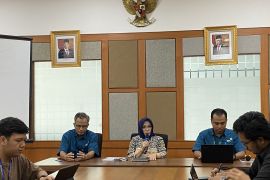One way the government has supported small businesses has been by gathering information about businesses in the area in order to streamline the business permit process.
As many as 70 small businesses have registered so far, with 40 overseen by Mimika's Cooperative and SMEs Office and 30 overseen by regional apparatus organizations (OPDs).
Head of the Mimika's Cooperative and SMEs Office, Petrus Yumter, said that the Mimika government and its agencies are committed to helping small businesses in activities ranging from getting home industry permits (PIRT) to providing marketing training on improving product quality, such as through packaging and labels.
The government is also helping small businesses in Mimika participate in exhibitions within the region and beyond to connect them with potential customers.
In 2022, 15 small businesses attended an exhibition in Bali to introduce and promote their processed products to people outside the region. They used digitalization in promotion activities.
The processed products made by MSMEs in Mimika include sago starch, mangrove tea, fish floss, red fruit, ant nests, chips, coffee, carvings of Papua’s Kamoro tribe, and noken — a knotted net or woven bag made by hand using wood fiber or leaves by communities in Papua.
During a visit to Sorong, West Papua, on October 11, 2023, Minister of Investment, Bahlil Lahadalia, said that Indonesian SMEs must ensure their products are of high quality and become competitive through capacity building and accelerating the process of obtaining business permits.
This is important because SMEs contributed 61 percent or Rp8,574 trillion to Indonesia's gross domestic product (GDP) in 2021.
SMEs also absorb 97 percent of the total workforce in the country and contribute 99.9 percent to Indonesia's total business units.
Based on data from the Ministry of Cooperatives and SMEs in 2022, there are more than 64 million MSMEs in Indonesia. However, only around 22 million have entered the digital market.
The government is targeting 24 million MSMEs to be connected to the digital ecosystem by the end of 2023 and 30 million by 2024.
Meanwhile, the number of SMEs in Indonesia in 2022 that have registered in the Online Single Submission Risk Based Approach (OSS-RBA) system was 8.71 million units, according to data from the Ministry of Cooperatives and SMEs.
West Java was in first place with the largest number of MSMEs at 1.49 million. Meanwhile, Papua stood last with a total of 3.9 thousand units.
The trade sector was the sector with the most SMEs at 3.95 million (45.1 percent). The services sector ranked second with 2.78 million units (31.9 percent) and the manufacturing sector ranked third with 1.98 million units (22.9 percent).
Digitization
According to the Mimika Regency government, MSMEs in the region have great potential. Local MSMEs are making high-quality processed products and good handicrafts. However, they are still facing challenges in marketing their products.
In the digital era, the market has grown rapidly. Consumers are increasingly using technology to shop. Therefore, MSMEs need to adapt to this situation and leverage technology to expand their markets.
The Mimika government has created an application called "UKM Mimika" to help MSMEs adapt to the digital era. The application provides a platform for MSMEs to market their products online.
The application is expected to help the businesses reach a wider range of consumers so they can increase their sales and profits. The government is hoping that the application would also encourage MSMEs to innovate, develop their businesses, and thereby, increase their competitiveness.
In addition to training, exhibitions, and digital promotion, the Mimika government is also providing shared factories to support small businesses to package and store their products.
MSMEs that face difficulty packaging their processed products can use the shared factories. There are three production houses for local SMEs in Mimika to help them maximize their businesses.
The factory also aims to improve the community's economy by utilizing local commodities from the region.
This can help businesses to improve the quality and efficiency of their production and reduce costs.
This shows the government's support for MSMEs in Mimika in helping create a thriving entrepreneurial ecosystem in the region. It is creating jobs, boosting the local economy, and improving the lives of people in Mimika.
The government has expressed the hope that through these production houses, Mimika's MSMEs will grow and develop rapidly.
The government's support for MSMEs is important; not only will it have a positive impact on both the regional economy and the community's economy, but also help build a more prosperous community.
Related news: SOEs Ministry facilitates MSMEs to expand market reach
Related news: Indonesia prepares regulation for digital market
Related news: Support 'wise' pursuit of MSME digitalization: Moeldoko
Translator: Shofi Ayudiana
Editor: Sri Haryati
Copyright © ANTARA 2023












